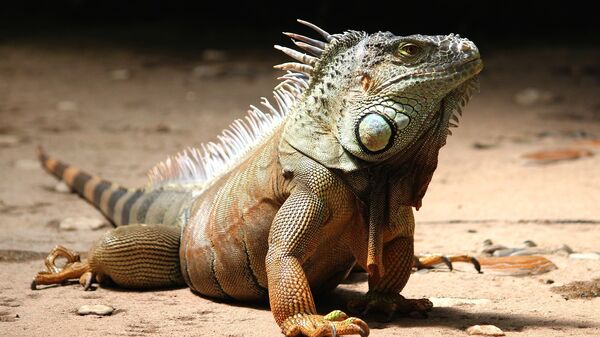The Miami National Weather Service office published the exceptional forecast on its Twitter page. The note says that iguanas are coldblooded animals who can slow down or become immobile due to the low temperatures.
Jan 21 - This isn't something we usually forecast, but don't be surprised if you see Iguanas falling from the trees tonight as lows drop into the 30s and 40s. Brrrr! #flwx #miami pic.twitter.com/rsbzNMgO01
— NWS Miami (@NWSMiami) January 21, 2020
The warning was addressed to people living in South Florida. Falling sleepy iguanas aren’t that rare in Florida during winters. When frozen, these cold-blooded creatures lose their grip on the cozy trees they call home and slip. They can also damage infrastructure by digging small burrows into sidewalks or foundations and leave their droppings on decks and inside swimming pools. Usually they start to freeze once temperatures drop to around 40F (4.44C).
"The temperature threshold for when iguanas begin to go into a dormant state depends greatly on the size of the iguana," explains Ron Magill, communications director for Zoo Miami. "Generally speaking, the larger the iguana, the more cold it can tolerate for longer periods."
It’s so cold the iguanas are freezing and falling out of trees @CBS12 pic.twitter.com/9nCTfKPaGJ
— Maxine Streicher (@MaxineStreicher) January 4, 2018
The iguana fared well but he has another cold night ahead! pic.twitter.com/zR0PFI7Oku
— Kay Pavkovich (@kay_pavkovich) January 4, 2018
The scene at my backyard swimming pool this 40-degree South Florida morning: A frozen iguana. pic.twitter.com/SufdQI0QBx
— Frank Cerabino (@FranklyFlorida) January 4, 2018


